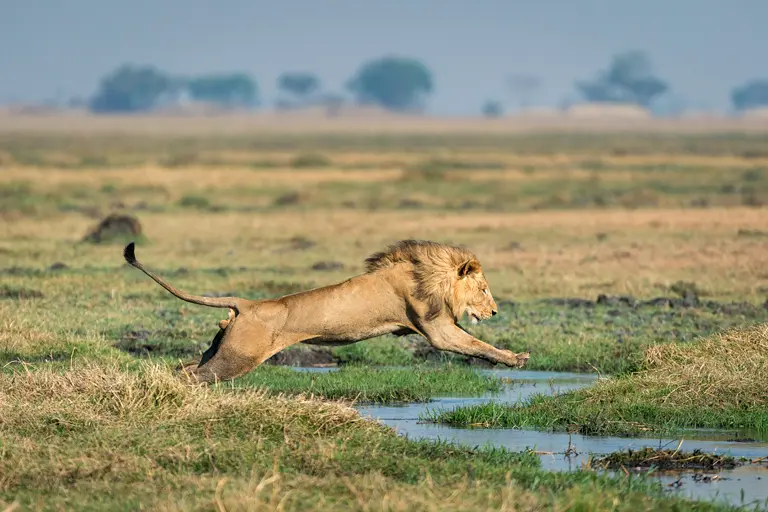

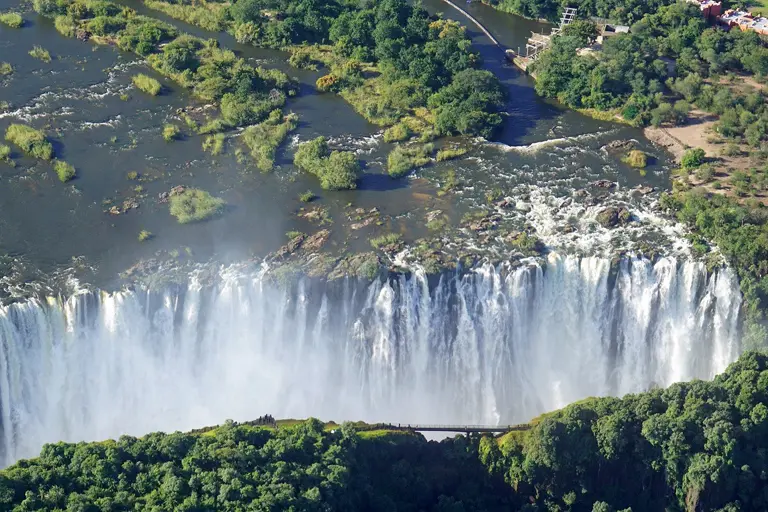
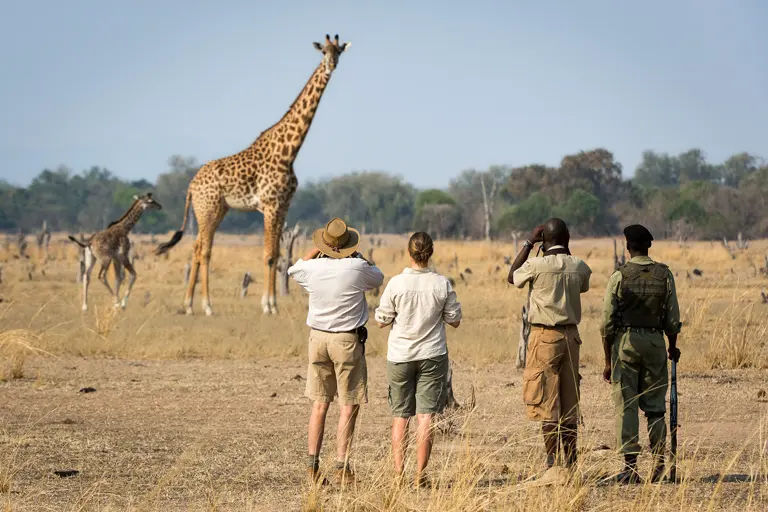
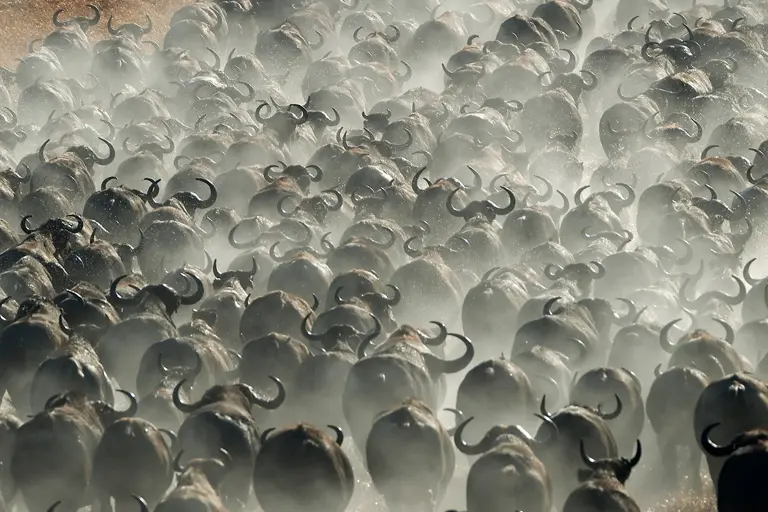
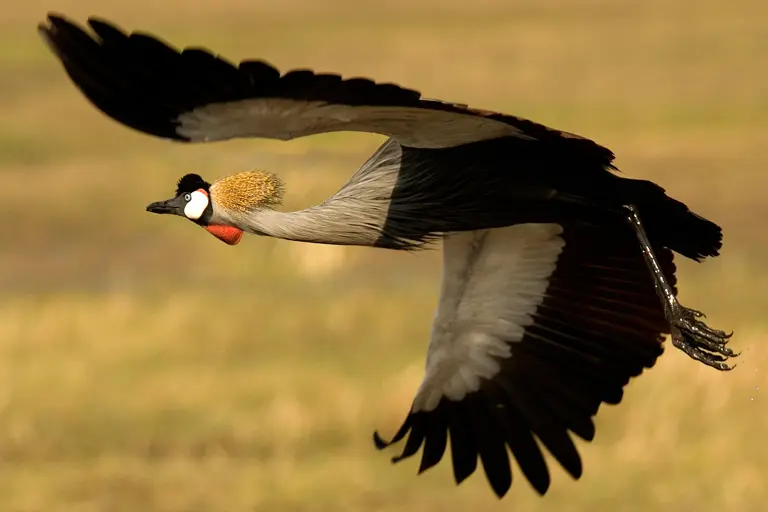
Reasons to Visit Zambia
Wildlife
Remote Wilderness
Walking Safaris
Zambia is a land-locked country located in the northern region of southern Africa. It shares its borders with Zimbabwe to the south, Namibia to the southwest, Angola and the Democratic Republic of the Congo to the west, Tanzania to the northeast, Malawi to the east, and Mozambique to the southeast. The country covers an area of 752,610 square kilometres and has a population of approximately 13.5 million. The capital city of Zambia is Lusaka.
Zambia is characterized by diverse geography and climate. It is traversed by the mighty Zambezi River, which forms the southern border with Zimbabwe. The country features large tracts of wilderness and national parks, offering unspoiled landscapes and a traditional feel.
The geography includes woodland regions such as mopane, miombo, and munga, as well as forests with teak and evergreen trees.
The climate in Zambia varies from region to region. Summers are characterized by late afternoon showers and temperatures reaching around 32 degrees Celsius. The main rainy season occurs from January to March, with widespread rainfall and occasional heavy storms. Winter is dry and sunny, with chilly nights and early mornings. Daytime temperatures can rise to around 25 degrees Celsius.
Zambia boasts a diverse range of flora and fauna. The country is home to the Big 5 (elephant, rhino, buffalo, lion, and leopard), but it also offers sightings of many other species. Wildlife enthusiasts can enjoy the second-largest wildebeest migration in Africa at Liuwa Plain National Park in November. Kasanka National Park is known for its massive fruit bat migration, where millions of bats take flight from October to December. The presence of the Zambezi River supports a variety of wildlife, including crocodiles, hippos, and predatory tigerfish. Other notable species include cheetahs, hyenas, wild dogs, various antelope species, and a rich birdlife with around 757 recorded species.
Zambia's economy has seen an increase in mining activities, with copper being the main natural resource. The country is known for its high-quality copper deposits, but it also has other minerals such as cobalt, tin, zinc, gold, lead, and coal. Additionally, Zambia is known for its semi-precious stones like amethyst, fluorite, and emeralds. The economy is not solely reliant on mining, as other sectors such as manufacturing and agriculture contribute to its growth. The tourism industry is still relatively small but offers opportunities for safari enthusiasts to explore the country's wilderness areas.
The culture of Zambia is diverse and influenced by various ethnic groups. The Zambian people are known for their warm hospitality and friendly nature. The country is home to multiple tribes, each with its own traditions, languages, and customs. Traditional music, dance, and crafts play a significant role in Zambian culture.
The Zambian people take pride in their wildlife and natural heritage, with conservation efforts being carried out by organizations such as Game Rangers International, Zambian Carnivore Programme, and Conservation Lower Zambezi. Visitors are encouraged to support local projects and communities to contribute positively to conservation and sustainable tourism.
Zambia offers several tourist attractions that showcase its natural beauty and wildlife. The most famous attraction is Victoria Falls, known as the "Smoke that Thunders." It is a natural wonder of the world and attracts many visitors.
The country also boasts 20 national parks, including Lower Zambezi, Kafue, and South/North Luangwa National Parks, which are popular for walking safaris and the chance to view big game up close. The knowledgeable Zambian guides, particularly the walking guides, provide memorable experiences. Other notable destinations include Liuwa Plain National Park for the wildebeest migration, Kasanka National Park for the fruit bat spectacle, and the Zambezi River for canoeing adventures.
For travellers planning a trip to Zambia, it is essential to consider the best time to visit. The dry season, from May to November, is recommended for game viewing and walking safaris when vegetation is less dense, and animal sightings are more common. May and June offer mid/low-season rates with fewer visitors. July to September is cooler, and larger herds of animals gather around water sources. The wet season, from October to April, is ideal for birding enthusiasts, with breeding plumage and migratory birds visiting during this time. However, it's important to note that some routes may be impassable due to the rain. It is advisable to check road conditions and park accessibility before planning a visit.
Visas are required for most nationalities visiting Zambia, including those from the EU, Canada, the USA, Australia, and New Zealand. Some passport holders may be able to obtain a visa on arrival, while others need to apply through missions abroad or Zambia's eVisa website. It is important to ensure that your passport is valid for at least six months from your date of entry and has sufficient empty pages for the required entry visa. It is recommended to check visa requirements with the nearest Embassy or consult with your travel agent. Providing accurate passport information to the tour operator before arrival is essential.
When packing for a safari in Zambia, it is recommended to bring neutral-colored casual clothing such as shorts, long trousers, shirts, and t-shirts. Bright colors and white attire are not suitable for game viewing, especially during game walks or open vehicle safaris. Sturdy shoes with thick soles are essential for protection against thorns and comfortable walking. Additionally, it is advisable to pack a light jacket or jumper for summer, and a warm jumper and jacket for winter. Other items to consider include a sunhat, nightwear, underwear, socks, sandals, swimwear, scarf/gloves, beanie/warm hat for winter months, and thermals for colder periods.
The electricity voltage in Zambia is 230 volts, and the frequency is 50 Hz. Zambia uses the Type C, Type D, and Type G electrical outlets. Some appliances may require a voltage converter or transformer for compatibility.
As part of the terms and conditions, it is essential for all travellers to purchase comprehensive travel insurance. The insurance should include full medical cover, emergency repatriation, cancellation coverage, and protection against loss, damage, or theft of personal belongings. It is the traveller's responsibility to arrange appropriate insurance and ensure it covers all activities planned during the trip. Carrying insurance details and providing them to the tour operator is recommended. In case of emergencies or accidents, having suitable insurance coverage ensures prompt assistance and necessary medical care.
